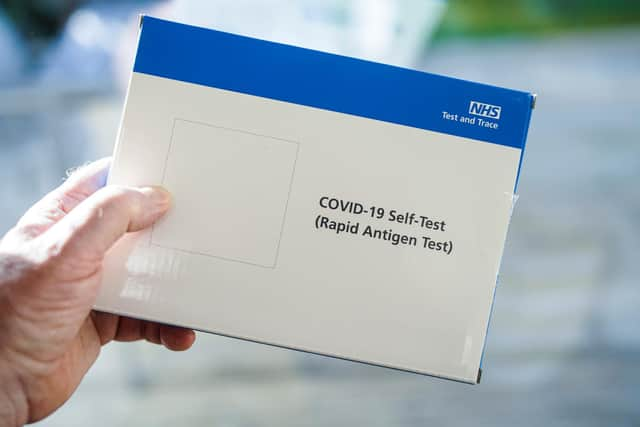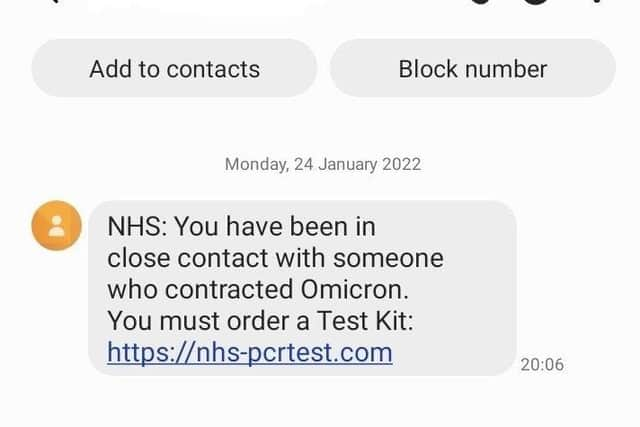Omicron scam warning as public asked to fork out for test kits
and live on Freeview channel 276
The message prompts people to give their bank details to order Covid testing kits.
It reads: “You have been in close contact with someone with Omicron” before advising the recipient to order test kits and links to a convincing, but fake, NHS page where they are asked to input personal and bank details.
Advertisement
Advertisement
Superintendent Gerard Pollock, chair of the ScamwiseNI Partnership said: “Throughout the pandemic we have seen fraudsters seek to exploit it for their gain and your loss and this is another awful example.


“I urge people to remain vigilant and guard against any texts you receive from an unknown number.
“The NHS does not ask you to pay for Covid-19 tests and will never ask for bank details.
“If you receive a text or email that asks you to click on a link or for you to provide personal information, such as your name, credit card or bank details, it’s mostly likely a scam.
Advertisement
Advertisement
“Don’t hit the link. Contact Tracing will never ask you for money, banking details or payment and if you are asked for these details hang up the phone immediately or delete the text message.


“It’s also important that if you have older members of family, talk with them and tell them that the NHS will never ask for their banking information. This is a really important conversation to have.”
How to protect yourself from scammers:
* Do not open attachments or click on links in emails or texts from numbers you don’t know.
* Never give out your personal information, banking details or passwords in response to an email, text or phone call without verifying that the caller is who they say they are.
* Block any numbers you find suspicious.
Advertisement
Advertisement
* Help police to stop these scammers by forwarding scam texts to ‘7726’ the SCAM text service.
* Always go to a website directly, by typing out the address yourself, when logging into an account. Do not click on links.
* Keep an eye out for spelling mistakes in messages and emails.
What to do if you think you might have been a victim of a scam:
Advertisement
Advertisement
* Anyone concerned they have been a victim of a scam should either report the matter to Action Fraud via their website www.actionfraud.police.uk or by phoning 0300 123 2040. Police can be contacted on the non-emergency number 101 or you can submit a report online using the non-emergency reporting form via http://www.psni.police.uk/makeareport/
Where to get further advice:
* For further advice and information visit www.nidirect.gov.uk/scamwiseni or the ScamwiseNI Facebook page @scamwiseni. ScamwiseNI have recently issued some helpful videos which show how these type of scams can take place and the terrible impacts for the victims.